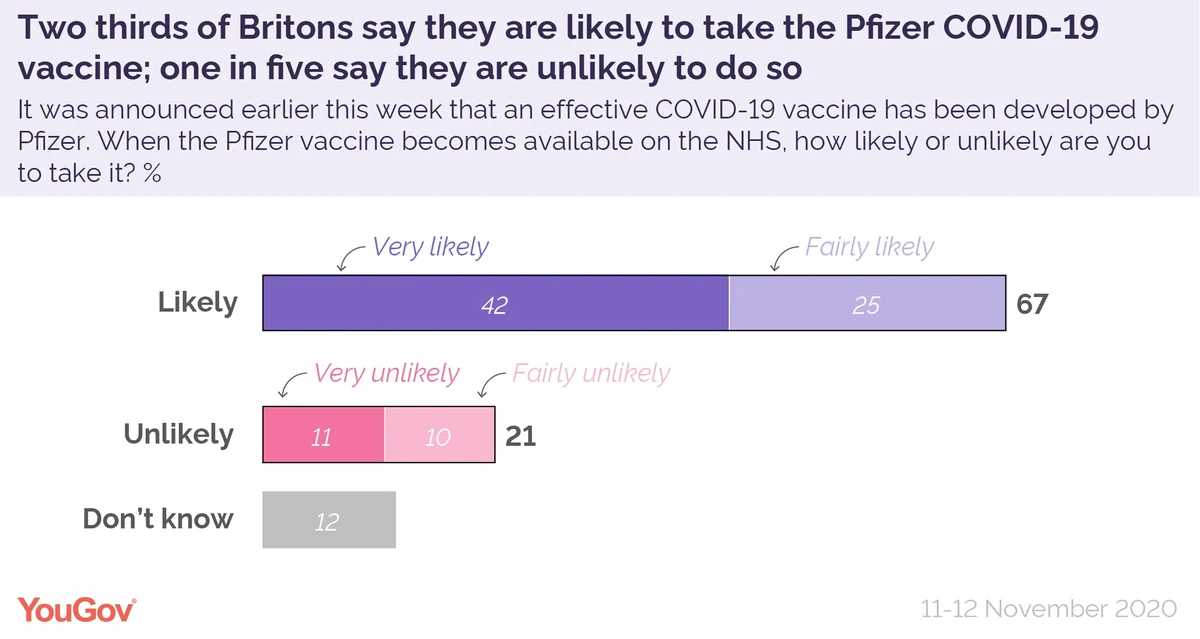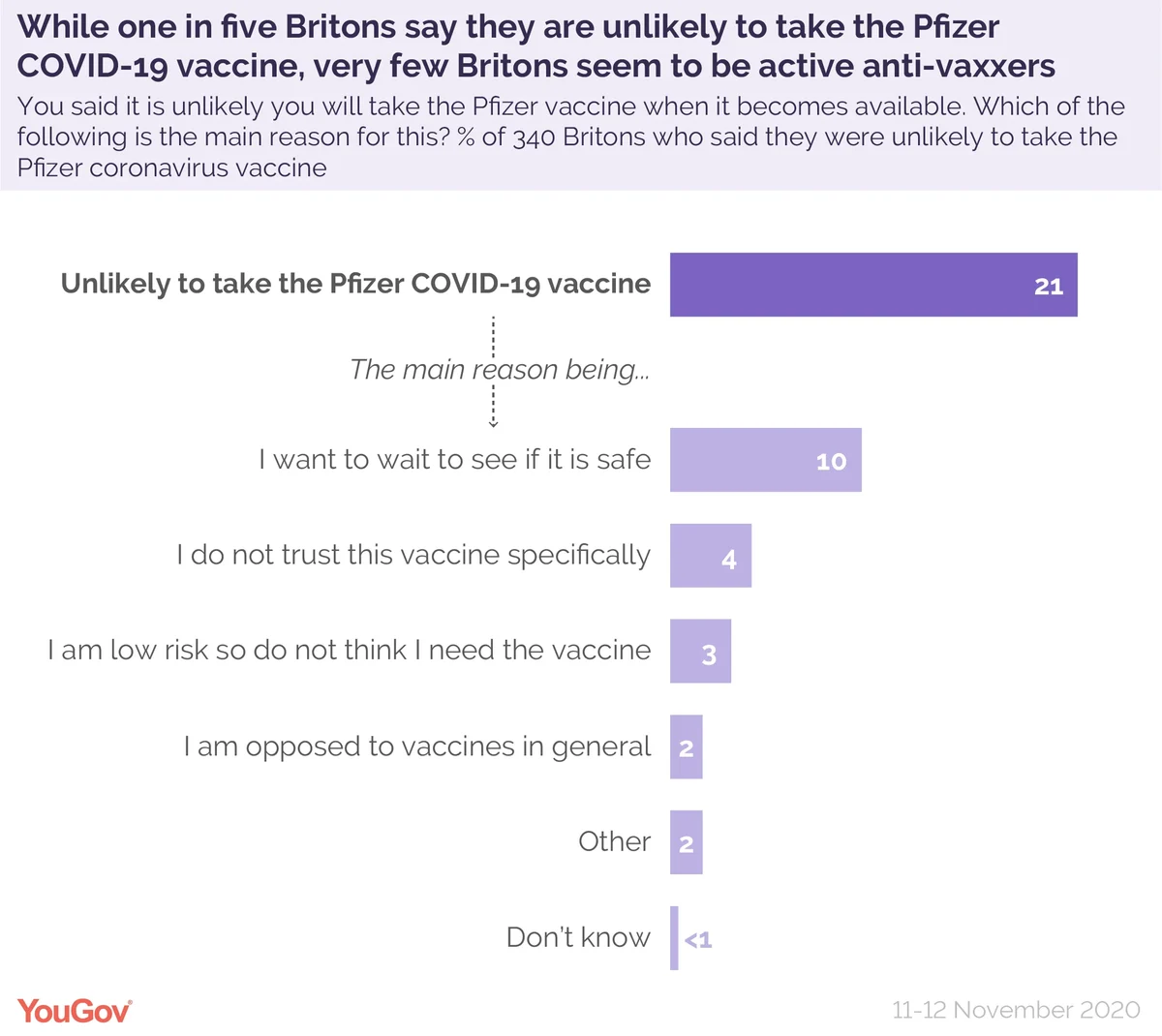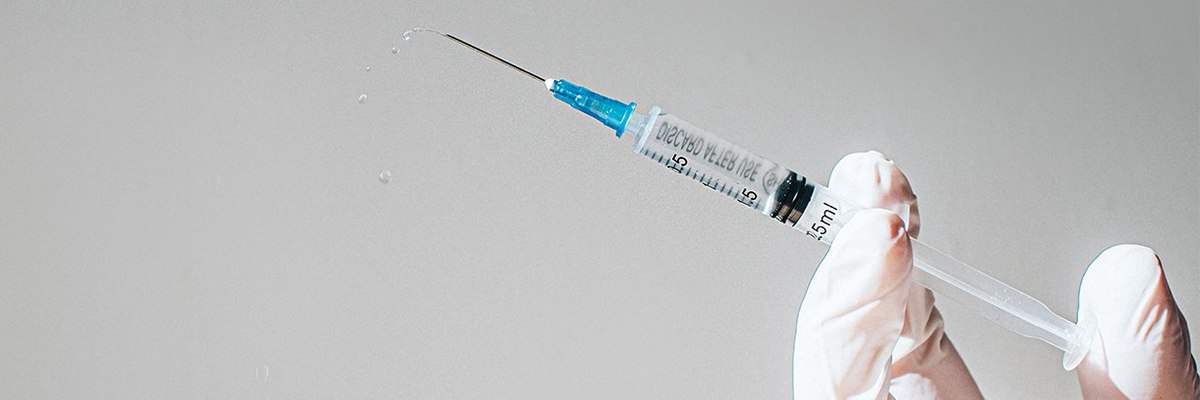Two thirds of Britons say they are likely to do so, and only a small fraction won’t do so because of ‘anti-vax’ views
Last week Pfizer announced it had developed the first effective COVID-19 vaccine. New YouGov research shows that two thirds of the public (67%) say they are either very (42%) or fairly (25%) likely to take the vaccine when it is available, with one in five (21%) saying they are unlikely to get it and 12% are unsure.
These figures are largely unchanged from earlier in November when we asked about a vaccine more generally. Then, 70% said they would likely take it compared to 19% who said they were unlikely to.

It is important to stress that one in five Britons saying they are unlikely to take the vaccine is not an indication of high levels of ‘anti-vax’ opinion in the country. The data shows that the motivations of this group are more nuanced.
Approaching half of this group (47%, or 10% of all Britons) say they simply want to wait and see if the vaccine is safe first. An additional 15% of this group (equivalent to 3% of all Britons) currently say they would not get vaccinated because they see themselves as low risk and therefore don’t need to.
One in five of those unlikely to take the Pfizer vaccine (20%, or 4% of the general population) state it is because they do not trust this vaccine specifically, while 8% of those who are reluctant to take the Pfizer vaccine say it is because they are opposed to vaccinations in general – equivalent to just 2% of the public.

The UK is set to prioritise getting the vaccine to older people and health workers. Our research finds that those aged 65 and over are the most likely age group to say they’ll take the vaccine when available (81%) followed by people between the ages of 50 and 64 (70%). While younger Britons are less likely to take the vaccine, a majority of both 25-49 year olds (58%) and adults under the age of 25 (63%) still say they are likely to do so.
The main difference in motivation for not taking the vaccine came down to perceived vulnerability. Those under the age of 50 who are reluctant to take the vaccine were twice as likely as those aged 50 and above (18% v 9%) to say it was because they felt themselves to be at low risk of catching the disease, and they therefore wouldn’t need vaccinating.
For their part, those aged 50+ who are unlikely to take the vaccine had a greater tendency than their younger peers (53% vs 45%) to say it is because they are waiting to see if the vaccine was safe. There is no difference in anti-vax sentiment between the two age groups.










